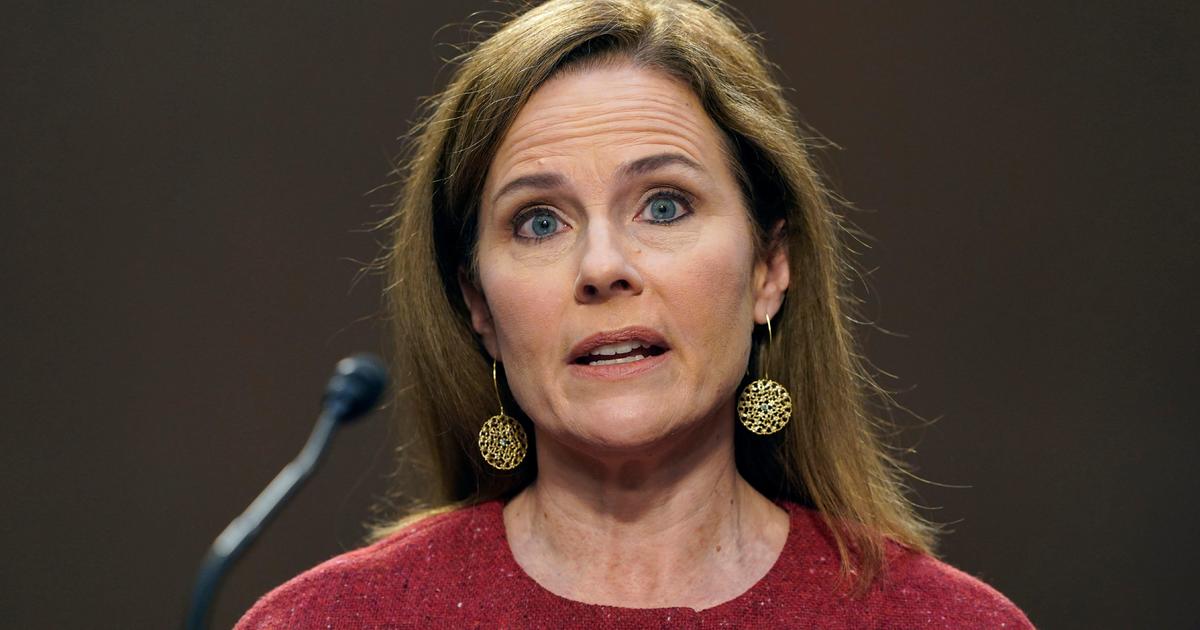
Washington — Judge Amy Coney Barrett, President Trump’s nominee to the Supreme Court, declined to wade into the hot-button legal issues she is likely to face if confirmed to the bench, repeatedly telling senators she could not discuss potential cases.
Barrett appeared before the Senate Judiciary Committee on Tuesday for the first day of questioning in her confirmation hearings. Currently a federal appeals court judge, Barrett explained her originalist judicial philosophy, but would not weigh in on topics like abortion, the Affordable Care Act, potential election challenges and gun rights.
“If I express a view on a precedent one way or another, whether I say I love it or I hate it, it signals to litigants that I might tilt one way or another in a pending case,” she said in response to questioning from Democratic Senator Dianne Feinstein. “I don’t have any agenda. I have an agenda to stick to the rule of law.”
Democrats have focused on a case involving the Affordable Care Act that is set to be argued before the court a week after Election Day. Barrett said the case differs from earlier challenges to the law, and said she had not taken a position on the issue at hand.
Barrett assured lawmakers she would apply the law as written and that she is “not here on a mission to destroy the Affordable Care Act.” She added that she had not made any commitments to the White House in advance of her nomination.
“Just as I didn’t make any precommitments and was not asked to make any commitments on the executive branch side, I can’t make any precommitments to this body either,” she said at one point. “It would be inconsistent with judicial independence.”
The first round of questioning is ongoing, with each of the 22 senators on the Judiciary Committee getting 30 minutes to ask questions or make remarks. Questioning continues on Wednesday with a second 20-minute round.

